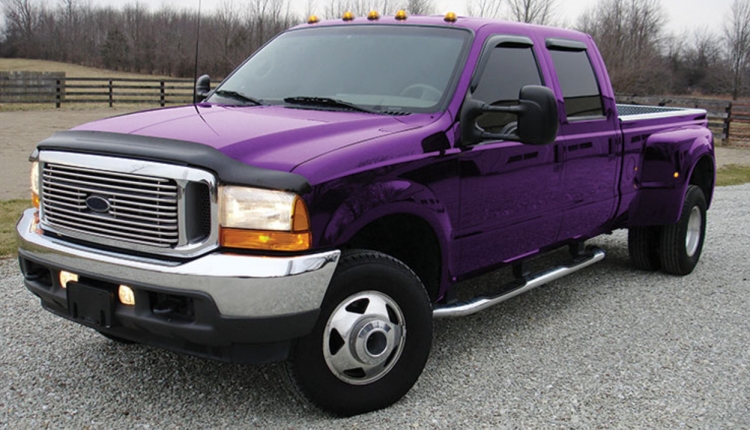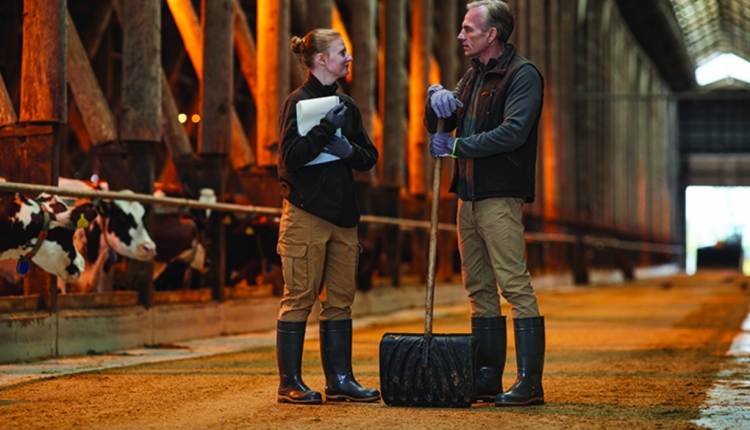
Somewhere along the way, someone asked me my thoughts on how authority should flow within a dairy. Upon reflection, I developed “The Purple Truck Theory.”
I am a fervent advocate for structure, organization, and clear lines of authority. However, I’m also an adamant believer in getting input from employees — as well as allowing employees to have an avenue for sharing counter thoughts on a decision made by their supervisor or manager. Getting the opinions of employees is crucial as long as it’s done in the context of sharing ideas rather than undermining the authority of the person in charge.
That brings us back to the proverbial purple truck theory.
Point and counterpoint
Imagine the owner of a large dairy calling his operations manager into the office to discuss replacing the fleet of farm trucks. Picture the owner saying, “I know we’ve always had white pickups for the farm, but I’ve done some research, and I’ve made the decision to replace them all with purple ones. They hold their resale value better and I want us to be unique.”
I think it’s imperative that the manager has the right to respectfully say, not within earshot of any of his staff, “That’s the dumbest idea I’ve heard since New Coke. You really want us to go to Expo in purple trucks? Who is ever going to want to buy a used purple truck?”
Conversely, the owner has an obligation to listen. If he remains unconvinced, the manager needs to accept it, laugh about it, and accept the fact that the owner has the final say. Then, more importantly, he has an obligation to back him up when it’s time to tell his staff.
Imagine it’s now time for the operations manager to tell the shop manager to prepare the white trucks to be sold since they’re being traded in for purple trucks. The shop manager should feel the same comfort in telling his supervisor that having purple trucks is the dumbest thing he’s ever heard, provided its done respectfully and behind closed doors.
Here’s where it gets challenging.
If the dairy is going to have a well-organized system of authority — while maintaining an open dialogue — the dairy manager has to bite his tongue and say, “Yep, we’re going to drive purple trucks, I think it’ll be good.” He absolutely cannot say, “I know it’s ridiculous, the owner is really off his rocker this time!”
The owner of the dairy has to know his manager has his back. If the manager questions the owner’s decision in front of the staff, it sends the message that the top manager doesn’t believe in the owners, just like the owner has to have the back of his leadership team. It’s the only way the lines of authority can remain clear, consistent, and constructive.
The same theory holds true as you go down the line. When the shop manager goes and tells his staff that they need to get the white trucks ready for resale in preparation for trading them in for purple ones, he needs to bite his tongue and sell it to his mechanics that purple trucks are the way to go.
During my career as a dairy operations manager, I had to make a list of the new equipment purchases every December for the upcoming year. I asked for a new disk for three years in a row, in addition to replacing whatever skid loaders and payloaders had gotten to the end of their useful life. Three years in a row, we replaced the skid steers and payloaders, but I never got my new disk.
I had more than one discussion with the owner. I would plead my case as to why we needed a new one, and he would counter with his reasons for not buying one. I would get frustrated and would so badly want to go to my shop manager and unload and vent about how badly we needed a new disk. Inevitably, we would use the disk, three-quarters of the disk scrapers (cleaners) would break off by the third round, and the disks would plug with mud so badly it looked like we were dragging Fred Flintstone’s car around the field as opposed to doing any actual tillage. I would have to play it cool and laugh off the fact that we hadn’t gotten a replacement disk yet. I had to resist the urge to sell out the owner by questioning his decision in front of my staff. Again, we would always joke about things, especially that old clunker of a disk. It became something like that bad wedding gift you receive and just regift at the next wedding, given the fact that it had been used on a several dairies and then passed on to the next unassuming manager.
However, I was careful not to openly question the decision made by the owner to people beneath me on the organizational chart. Instead, I tried to get a laugh out of the guys every time they’d have to fix it. In the end, the owner ended up getting us a brand new chisel plow and it worked just fine in replacing the old, rotten disk and life was good. To this day, we still laugh about that disk.
Think first, react later
In my role in sales and consulting, I’ve been disappointed to see instances where dairies didn’t have a culture where authority was setup to back each other up. I once saw a dairy owner question his herd manager in front of the milking staff.
The herd manager was training a new employee to drench fresh cows, and the owner said bluntly, “Don’t do it like that; do it like this . . .”
The dairy owner wasn’t wrong in his explanation of how the cow should be drenched. However, by stepping in and overruling the manager in front of staff, this left the employee looking confused, wondering who is his boss and if this manager is really capable.
This conversation should have happened away from the new employee and should have went something like, “Hey man, looks like things are going well with your new employee, but I just wanted to make sure we’re on the same page with how we drench fresh cows.”
Equally disastrous
I’ve also seen mid-level managers say to their staff, “I know the owner wants us to do it this way, but that’s ridiculous. Do it my way.” This can be equally catastrophic to the culture of a dairy.
That manager is telling the employee, “Some rules you follow, some you don’t. I’ll let you know which rules to follow.” I see this most often when there’s a language barrier and the owner has chosen the person who is the most bilingual to be the supervisor as opposed to the most qualified leader.
To be successful over the long haul, an organization has to have a system of authority as well as a way for employees to provide input and feedback up through the chain of command. When all levels of ownership and management can feel equally confident that the people around them have their back, employees can become part of the bigger picture in moving the farm forward. That creates a culture destined for success.








